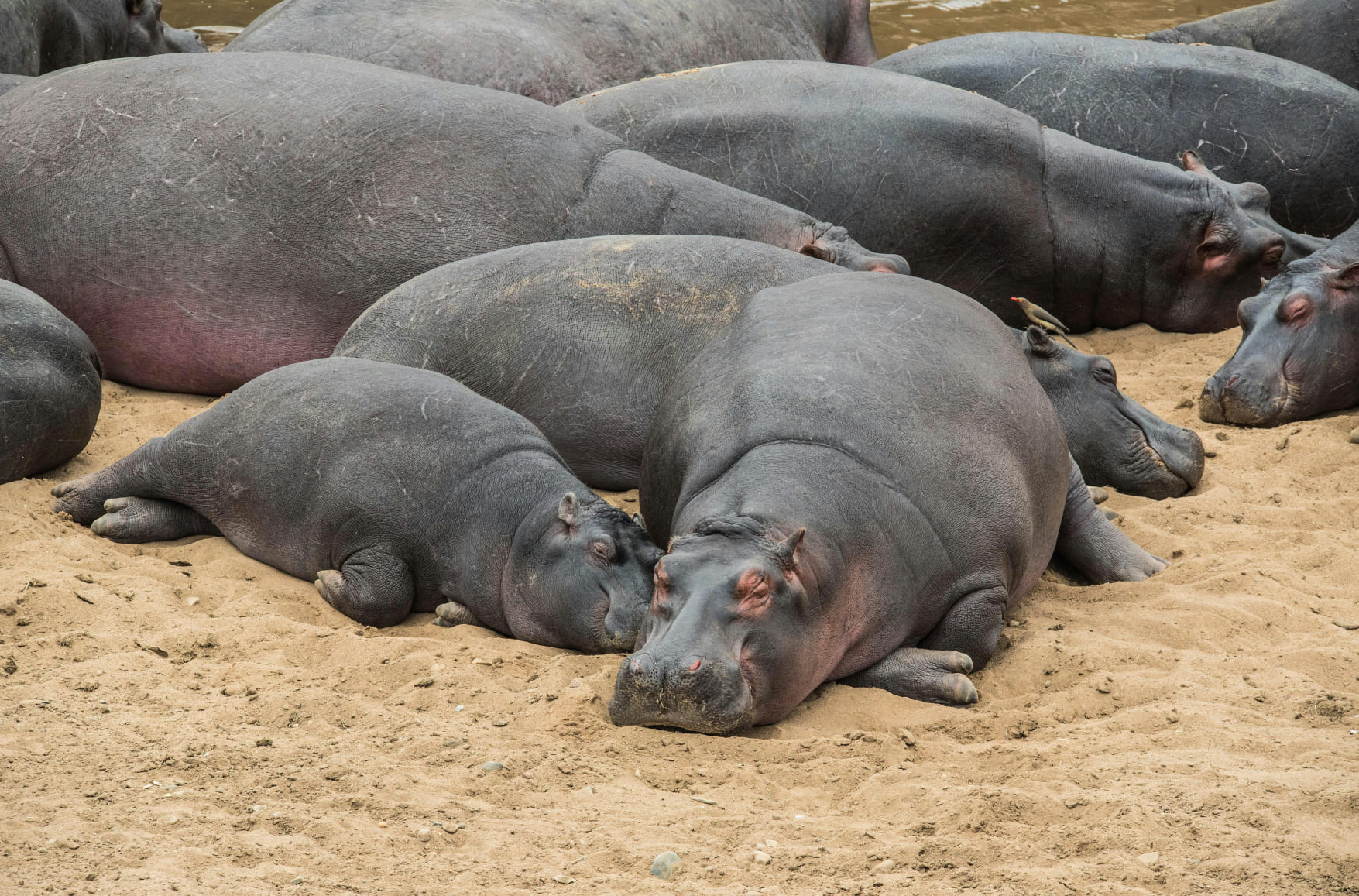Hippopotamus: The River Giants of Africa
Hippopotamuses, or hippos, are large, semi-aquatic mammals native to sub-Saharan Africa. Despite their massive size and somewhat lumbering appearance, hippos are excellent swimmers and spend much of their time submerged in rivers and lakes to keep cool under the intense African sun. With their barrel-shaped bodies, thick skin, and large, powerful jaws, hippos are built for life in the water, where they establish territories and protect themselves from the heat.
Hippos are primarily herbivores, feeding on grasses during nighttime grazing trips. They have a significant impact on their ecosystem, as their grazing habits shape grasslands, and their waste in water bodies provides nutrients for aquatic life. However, hippos can be highly territorial and are known for their aggressive behavior, especially when their young or territories are threatened. Despite their herbivorous diet, they are considered one of the most dangerous animals in Africa due to their unpredictable nature.
The population of hippos faces threats from habitat loss and poaching, primarily for their ivory-like teeth. Conservation efforts focus on protecting their natural habitats and preventing illegal poaching, ensuring these river giants continue to thrive in their native environments.

